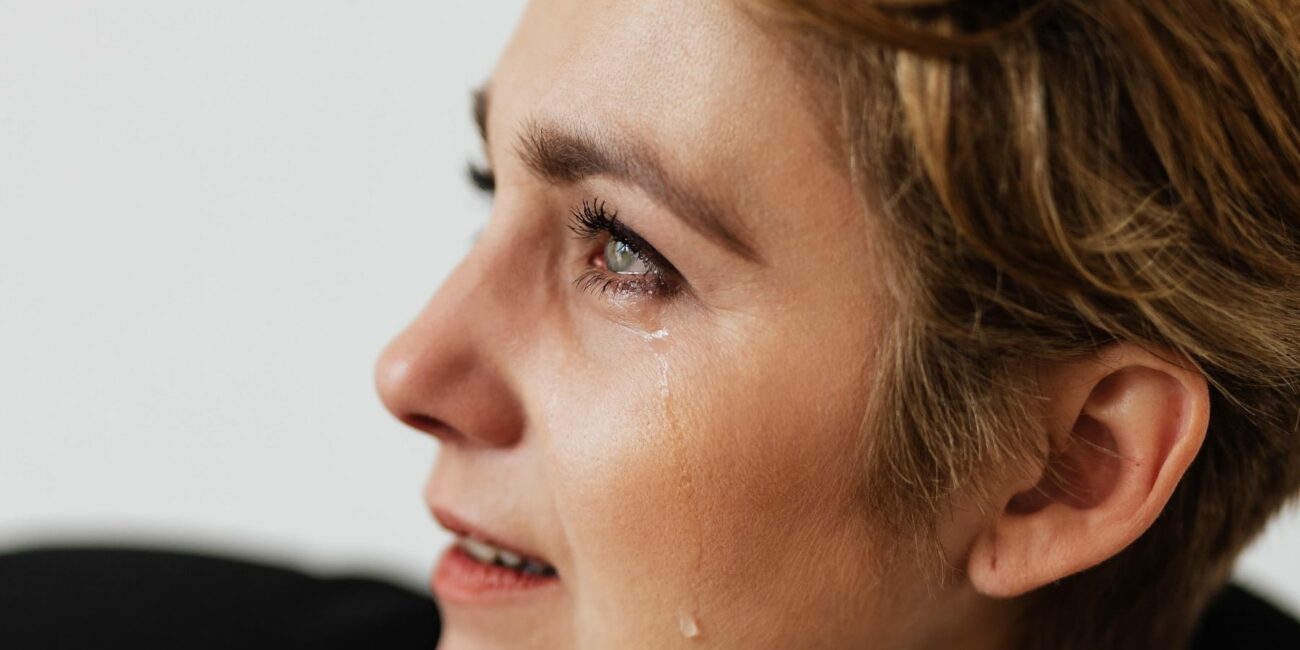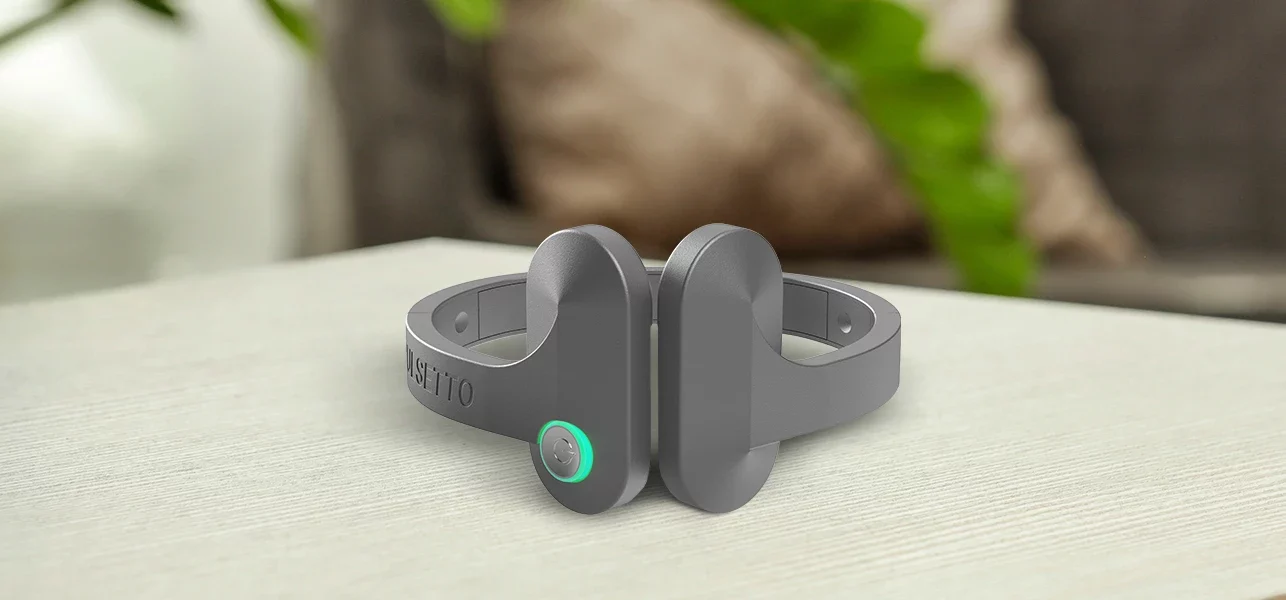Crying and Mental Health: Why Can’t I Cry Anymore?

Do you ever find yourself in a situation when you can’t cry, even though you want to? You don’t have to feel bad about it – crying is the most complex form of emotional expression.
It’s the only expression that you can’t easily fake (actors aside). It’s often tied with cultural norms, telling you when and in front of whom you can cry, if you should at all.
Cultural and personality differences result in different behaviors when it comes to tears. Some people avoid them at all costs and bottle up their emotions. Others choose to cry a river until they feel relieved.
However, some people may find themselves in a perplexing scenario when tears just don’t fall when they want them to.
But is this a bad sign?
As with everything connected to mental health, it depends. If everyone else in the cinema is sniffing their nose, but you don’t – that’s fine. People’s emotionality and capacity to control their feelings differ.
But if you find yourself in a situation where everyone would be bawling their eyes out, and all you feel is emptiness and void, it can be a sign that something is wrong.
Medical factors stopping you from crying
Inability to cry can result from problems with tear production. If you cried for 2 hours straight, your tear glands might struggle to keep up with you.
It can also be a result of dry eye syndrome, which impairs tear production. Other things that can cause this condition include pregnancy, aging, wearing contact lens, or having medical issues, such as diabetes or thyroid problems.
It can also be Sjögren’s syndrome, a viral or bacterial infection that attacks the glands that produce moisture, so your eyes and mouth start to dry.
Some medications, such as birth control pills (especially for women wearing contact lenses), blood pressure medications, or certain antidepressants can also dry your eyes.

Advertisement
How to bring tears back to your life and feel good again?
But what to do when that siren is broken? If that isn’t due to a medical condition listed above, there are some things you might want to try.
Try therapy
Some problems, such as depression or anhedonia, may be very tricky to deal with on your own. Mental health professionals have the experience and knowledge to help you.
When you have a broken leg, you definitely don’t try to put a band-aid on it. Therapists, just like surgeons, know effective and appropriate ways to help your mind heal.
Online therapy is a great way for people who struggle to identify their emotions. It gives you as much time as you need to think about your feelings, allows for anonymity, and provides an everyday connection with a therapist who can guide you on your journey to reconnecting with yourself.

- Mood journal to build conscious, reflective habits for better self-monitoring
- Self-management lessons that are scheduled and explored by you (the user)
- Regular activities to help you maintain healthy habits and mental well-being
- Tips, strategies, and other resources for self-education
Read more: Sensa review.
Acknowledging, and giving space and time for your emotions is the straightest way to bring the tears back.
No matter which method you decide to try, remember that every journey is personal and there are no strict standards when it comes to your mental health.
Examine and update your thinking
Are any ingrained prejudices stopping you from crying? Maybe you believe that crying is a sign of weakness instead of a signal that you are going through a difficult moment.
Try to allow yourself to feel all emotions, as they all serve their own purpose, even if culture frowns upon some of them. Expressing them is sometimes the only way to overcome them. Your body might know better than you, but it takes courage to trust it.
Identify your emotions
It’s tricky to express an emotion when you don’t know what it is exactly. Try to think about what caused it. Thinking about your urges may also help you track back the emotion. Maybe you want to be left alone? Maybe you want to smack the table?
Express your emotions
It can be a confusing and unpleasant thing to do, but this is what emotions are – an honest language we have been using to communicate with others since before we could even speak.
If you find it hard to fully connect with your emotions, try verbalizing them. Start by saying to the person close to you: “I am hurt.”
If you are not ready for such a gamble, practice on your own. Try writing them down, drawing, playing with a musical instrument, or talking to your reflection in the mirror.
Mental health problems locking your tears
Alexithymia
Alexithymia is a condition in which you are unable to identify what you are feeling. The reasons behind this condition are not yet discovered.
Depression
It’s a popular belief that depression is all about sadness and crying, but it can manifest in many different ways.
Some people experience depression as a state of complete numbness or feeling “flat.” Neither positive nor negative things around them can elicit an emotional response, thus leaving them unable to cry.
Anhedonia
Anhedonia is the inability to experience positive emotions from situations or activities that were once enjoyable. While it’s a common symptom of depression and other mental health disorders, anhedonia can also develop as an independent condition.
And while it doesn’t seem to be very connected with the struggle to shed a tear, it actually is. Anhedonia not only causes a lack of positive emotions, but can limit the ability to express emotions in general.
Repressed emotions
As we grow up, we learn to control negative emotions such as anger or sadness. We start to choose when to show them and with whom we can express them more freely.
It certainly has benefits. Losing your temper and shouting at your boss is not a very good idea if you like your job.
However, some people take the extra step of avoiding expressing these emotions at all, thinking that they make them look weak or rude, and that would be unacceptable for their social image.
We may have various reasons to be afraid of vulnerability: we are not sure people around us will be ready to take it, help us, or accept it, or we’ve learned that being strong is what’s expected of us. Speaking of expectations…
Cultural pressure
We express emotions to show others how we feel. Smiling means we are in a good mood or want to look welcoming. Raised eyebrows inform others that something surprised us. Crying shows that we got really emotional. Most of the time, it indicates that we are in a vulnerable state and might need support.
Expression acceptability carried greatly among cultures. Some societies, such as the U.S., understand showing your emotions is a sign of being genuine. The Japanese have come so far that some cities now have “crying clubs” where people gather to watch tearjerkers and shred a tear or two. Other cultures, however, encourage you to leave strong feelings behind your doorstep.
While babies are allowed to cry as much as they want (because there is no way to stop them), teenagers and adults are expected to express their sadness in more reserved ways, or not at all.
Some cultures even segregate between genders, shunning anger among women and sadness among men, teaching the latter to “man up”.
While the ability to control your emotions is often praised as a virtue not only among poker players, but entire societies, it can do a lot of harm. Bottling up your emotions and trying to look fine when you are feeling just the opposite can have negative mental and physical consequences.
Surprising benefits of crying
Most of us know that a good cry leads to relief, but few know that crying also contributes to physical health. A study found that people with inflammatory bowel diseases cry less than healthy individuals and evaluate crying as a negative thing.
Expressing your emotions with tears can ease not only mental but also physical pain. Researchers found that patients with rheumatoid arthritis who cries manage their disease better than patients who don’t express their sadness with tears.
Even the emotional relief you feel is physical. Emotional tears contain stress hormones and neurotoxins, according to research. And when you cry, you get rid of these substances.
Letting down your guard and admitting to yourself or others that you are overwhelmed is definitely beneficial to your mental health.
Imagine your emotions as a control panel. A blue bulb (sadness) lights up when there is a problem. When it’s an emergency, a siren (tears) joins in. Now imagine you are so afraid of the siren that you cover up your ears every time you hear it. Will it go away every time or will it ruin the system?







Comments (0)